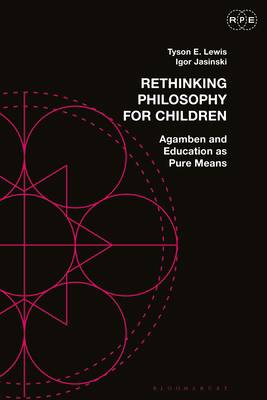
En raison d'une grêve chez bpost, votre commande pourrait être retardée. Vous avez besoin d’un livre rapidement ? Nos magasins vous accueillent à bras ouverts !
- Retrait gratuit dans votre magasin Club
- 7.000.000 titres dans notre catalogue
- Payer en toute sécurité
- Toujours un magasin près de chez vous
En raison de la grêve chez bpost, votre commande pourrait être retardée. Vous avez besoin d’un livre rapidement ? Nos magasins vous accueillent à bras ouverts !
- Retrait gratuit dans votre magasin Club
- 7.000.0000 titres dans notre catalogue
- Payer en toute sécurité
- Toujours un magasin près de chez vous
228,95 €
+ 457 points
Format
Description
This book is available as open access through the Bloomsbury Open programme and is available on www.bloomsburycollections.com.
What is philosophical about the practice Philosophy for Children (P4C)? In this book, the authors offer a surprising answer to this question: a practitioner's contemplation of the potentiality to speak, or what can be called infancy. Although essential to the experience of language, this most basic and profound capacity is often taken for granted or simply instrumentalized for the educational purposes of developing critical, caring, or creative thinking skills in the name of democratic citizenship. Against this kind of instrumentalization, the authors' radical reconceptualization of P4C focuses on the experience of infancy that can take place through collective inquiry. The authors' Philosophy for Infancy (P4I) emerges as a non-instrumental educational practice that does not dictate what to say or how to say it but rather turns attention to the fact of speaking. Referencing critical theorist Giorgio Agamben's extensive work on the theme of infancy, the authors philosophically engage the core writings of Matthew Lipman and Ann Sharp, foundational scholars in the P4C tradition, to rediscover this latent potentiality in the original P4C program that has yet to be developed. Not only does the book provide a new theoretical basis for appreciating what is philosophical in Lipman and Sharp's formulations of P4C, it also provides a unique elucidation of key concepts in Agamben's work-such as infancy, demand, rules, adventure, happiness, love, and anarchy-within a collective, educational practice. Throughout, the authors offer applications of P4I that will provide anchoring points to inspire educators to return to philosophical experimentation with language as a means without end.Spécifications
Parties prenantes
- Auteur(s) :
- Editeur:
Contenu
- Nombre de pages :
- 168
- Langue:
- Anglais
- Collection :
Caractéristiques
- EAN:
- 9781350133570
- Date de parution :
- 23-09-21
- Format:
- Livre relié
- Format numérique:
- Genaaid
- Dimensions :
- 156 mm x 234 mm
- Poids :
- 412 g

Les avis
Nous publions uniquement les avis qui respectent les conditions requises. Consultez nos conditions pour les avis.






